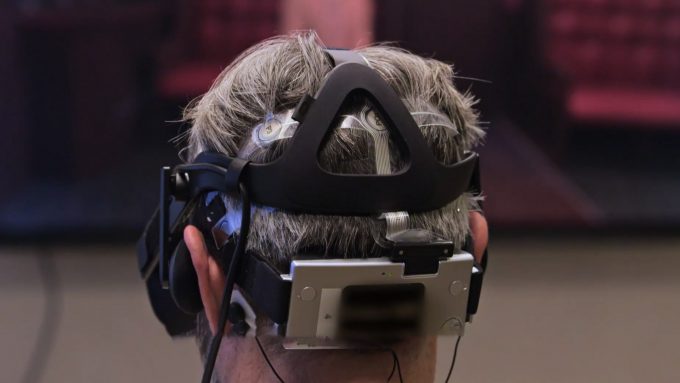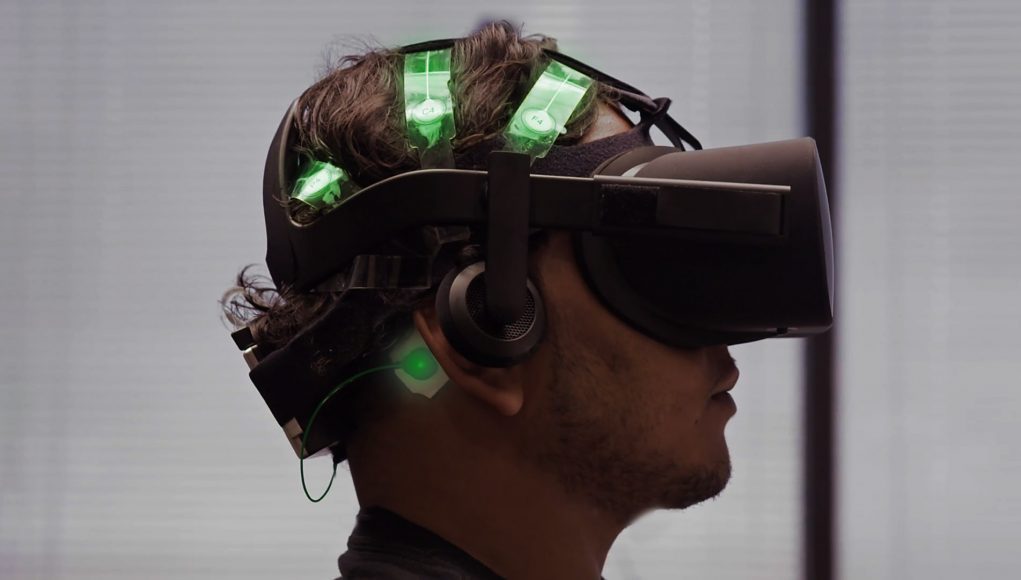 Virtual reality has the potential to enable so many amazing utopian futures, but it also has the potential to become one of the most intimate surveillance technologies that could create a Big Brother dystopia of political and economic control. But if privacy considerations are built into virtual reality technologies from the beginning, then Accomplice investor Sarah Downey argues that the metaverse could actually be one of the last bastions of privacy that we have in our lives.
Virtual reality has the potential to enable so many amazing utopian futures, but it also has the potential to become one of the most intimate surveillance technologies that could create a Big Brother dystopia of political and economic control. But if privacy considerations are built into virtual reality technologies from the beginning, then Accomplice investor Sarah Downey argues that the metaverse could actually be one of the last bastions of privacy that we have in our lives.
LISTEN TO THE VOICES OF VR PODCAST
Downey has a legal background in privacy and previously worked at a privacy start-up, and she’s currently investing in virtual reality technologies that could have privacy implications such as the brain-control interface company Neurable that can detect user intent.
Privacy Facilitates Authentic Free Speech
Downey believes that privacy is a fundamental requirement for freedom of expression. In order to have the full potential of First Amendment that guarantees the freedom of speech in the United States, then you need to have the protections of the Fourth Amendment that protects a reasonable expectation of privacy. She makes the point our digital footprints are starting to bleed into our real lives, and that this will lead to less authentic interactions in the real world.
The advertising business models of Google and Facebook rely upon creating a unified profile that connects your online behavior to your actual identity, which creates a persistent digital footprint that follows you where ever you go. As search histories have been subpoenaed into child custody cases or social media posts get people fired, it’s created an online environment where shared content is being considered public and permanent not ephemeral.
This has a chilling effect that creates what Downey calls a “fraudulent shell that limits authenticity.” The erosion of a truly private context has created a stale and boring environment that has limited her authentic expression on sites like Facebook, and she warns that our unified digital footprints will start to spread into the real world as augmented reality technologies with facial recognition start to spread. As we start to loose the feeling of anonymity in public spaces, then we’ll all be living out the first episode of season three of Black Mirror called “Nosedive” where every human interaction is rated on a five-star scale.
Weakening the Fourth Amendment by Sharing Private Data
Downey also argues that the Fourth Amendment is based upon a culturally reasonable expectation of privacy, which means that our cultural use of mobile and web technologies has had a very real legal effect on our constitutional rights. There’s a subjective interpretation of the law that’s constantly evolving as we use technology to share the more intimate parts of our lives. If we feel confident enough to share something with a third-party company, then it’s not really legally private and can be subpoenaed and used within a court of law.
Creating Unified Super Profiles
There are different classes of private information, and so companies like Google and Facebook are able to collect massive behavioral histories of individuals as long as they don’t share access to the personally identifiable information. They can anonymize and aggregate collective behavioral information that’s provided to their advertising customers, which enables them to create a business model that is based upon detailed surveillance of all of our online behavior.
Google recently quietly created an opt-in that links all of your historical web browsing history from DoubleClick to your personally identifiable account, and Facebook actually buys external financial and mortgage data to tie into your web browsing and social media interactions.
The Intimate Data We’ll Share with VR
Now with virtual reality technologies, Oculus’ privacy policy says that they can capture and record “information about your physical movements and dimensions when you use a virtual reality headset.” This is starting with head and hand tracked information, but if this is correlated to the VR experience then the content of your gaze and what you’re looking at could already start to be recorded, stored forever, and combined with other public or commercially available information in your Facebook super profile.

As of right now, none of the information gathered by a virtual reality technologies has been determined to be definitively classified as “personally identifiable information,” which enables VR hardware companies and application developers to capture and store whatever they like. But once there are eye tracking technologies with more sophisticated facial detection or one day brain-control interfaces, then VR technology will have the capability to capture and store really intimate data including facial expressions, eye movements, eye gaze, gait, hand & head movements, engagement, speech patterns, emotional states and, from EEG, brainwaves, attention, interest, intent, and potentially even eventually our thoughts. The rules we make today about how basic information like head and hand movements in VR can be used will set a precedent ahead of these more sophisticated and precise tracking technologies.







